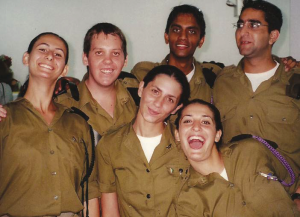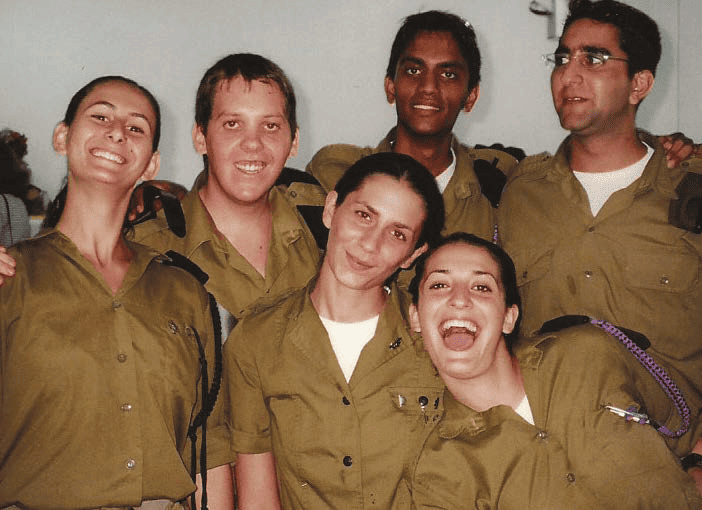Laine M. Rutherford

The life of a 17-year-old Israeli high school senior isn’t much different than a 17-year-old American student. They’re both listening to music, hanging out with friends, acting goofy, possibly dating, probably working, and thinking about graduation and the future.
At 18, though, their lives veer significantly. American young adults can choose to head off to college or work. They may voluntarily join the military, or spend time in a gap year program while they figure out what they want to do with their lives.
The Israeli teen doesn’t have a choice. Eighteen means military. It means leaving home and everything you know and taking on the tremendous responsibility and obligation of protecting your country. It means growing up. Quickly.
Naty Horev, cultural arts specialist at the Simon Family JCC, is a veteran of the Israel Defense Forces. Her experience in the military is similar to that of hundreds of thousands of other IDF vets.
“My birthday was in June and I was drafted in November,” says Horev, 34. “There was no question about going—it’s the way you’re brought up in Israel. It’s very important that you give back to your country and your service is not something you miss.”
Seeing still-maturing youths walking on the streets, shopping in malls or visiting schools with rifles strapped across their backs may be shocking for Americans, it was an everyday sight for Horev growing up in Tel Aviv.
And as prepared as she thought she was for military duty—she was active in Tzofim, the Israeli Scouts, and knew many friends in the Army—it was much harder than she thought it would be.
“I started in the north, and I didn’t know anyone at first,” she says. “You get there, and you’re stripped of your life. You get handed a blanket, a helmet, a jacket, boots, one white t-shirt, one green t-shirt, a weapon. It’s very strict—no jewelry, no nail polish, your hair has to be worn a certain way. You’re told what to do and what not to do, and when to do it.”
A test she had taken at 17 determined Horev’s job in the Army. She was a drill sergeant, teaching soldiers how to throw grenades, shoot their M-16s, and deal with civilians in combat situations. She liked the job, and was good at it, but had to take another position following ankle surgery.
For the remainder of her service, Horev was a personal welfare affairs officer. She helped provide resources and support for soldiers who had significant home problems— whether their parents were in jail and they needed housing, or they had to work to support their families and needed more time away from the base.
“I loved that job,” Horev says. “It gave me hope, because no matter what, these kids still wanted to help. They wanted to protect their country. I never had anyone say I don’t want to do this anymore.
“We become what we call the Israeli butterfly. You go to school. You go to the Army. You travel the world. And that’s what I did.”
The many lessons Horev learned from her service in the military have shaped her life she says, and have influenced the woman, mother, and professional she is today.
“Serving my country taught me that everybody has a story. It taught me to be patient, to look at both sides always. To realize how fragile life is,” she says. “You grow up fast. You cope and you continue. It’s part of being an Israeli.”
Horev has great respect for U.S. active military and veterans, but she notes their experience is different—and she also sees a huge difference between a 24-year-old Israeli and a 24-year-old American.
“In the United States, someone sees being in the military as their job. They decided they wanted to do it. In Israel, it’s mandatory. You go because it’s part of your life. I wish it wouldn’t be that way, but it is.

